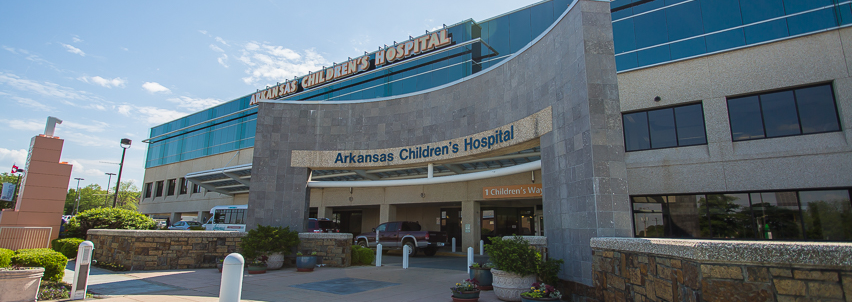Currently there is no cure for CF; however, due to advances in medical care people with CF are living longer and better than ever before.
Your child will need insurance coverage. There are two types of insurance; private and public. Both types of insurance cover CF care in general, but differ in how their coverage. Arkansas Children’s Hospital has financial counselors available to discuss coverage options depending on what type of insurance you already have and help caregiver’s complete applications. Also, the social worker from the CF Team can help guide families to available resources.
It is possible for any child with CF to need hospitalization at some point in their lives. Reasons for a hospital stay could include treatment for a lung infection with an IV antibiotic or failure to grow or gain weight appropriately. Majority of these problems can be treated at home working with your CF team. Hospitalization would only be required if home treatment failed. The goal is always to get the child healthy and back to everyday life as soon as possible.
Due to strict infection control practices, your child will stay in their room for the whole hospital stay. You can bring activities from home, such as games, videos, movies, to make your child’s stay more enjoyable. We also have in-room activities available. A child life team member will check on you/your child regularly. A school teacher is also available to help with your child’s homework so they don’t get behind. A refrigerator is available in the room for food and drinks for parents. You child will get special meal ordering privileges from the cafeteria. A laundry room is available. Visitors are allowed, but certain rules may apply during winter months. To see more on visitor rules, go to https://www.archildrens.org/patients-and-visitors/visitation-policies
Children with CF have a normal immune system, so they do not get sick more easily. However, if they get a cold or respiratory virus it can be harder for them to recover. Your CF care team clinic will teach you how to keep your child healthy. Also, you can learn more about infection control practices at www.cff.org.
Yes, however some precautions may be needed. You should work with your daycare center or the school so they understand your child’s medical needs. Take time to explain CF to your child’s caretakers. Your child cannot be near other children or adults with CF (at least 6 feet away at all times, separate classrooms, etc.) due to risk of spreading CF germs. Your child should also be kept away from adults or children who have a respiratory illness. Good hand washing is required by teachers or staff involved in your child’s care.Good communication is very important to keep your child healthy in these settings. Educational handouts are available for daycare and school at www.cff.org or ask your CF care team for information.
Having a baby or child with CF often means learning about a condition that you may not have known much about before; learn signs and symptoms of CF related issues; attend regular clinic visits at the CF Care Center as well as primary doctor; set up a daily routine for treatments and medication which can take up to an hour or more each day. Daycare or schools will need to be informed of your child’s medical care needs. Since nutrition is very important, you will focus more on meal planning for your child. There will be some things that are more challenging when living with CF, but there are only few things in life that your child or family can’t do because of CF. Otherwise, it’s life as usual.
CF does not affect the brain or how smart a person is. Children with CF are able to do the same things as other kids. Also, young adults with CF go to college, have careers, and get married like their peers.
CF is a progressive condition by nature. It is not possible to predict a person’s health over time. Many different factors can affect the medical course. Some people with CF have more problems related to the disease while others may have milder symptoms. Researchers are studying the factors that can play a role in the overall health of people with CF. Also, advances in CF Care are enabling people with CF to live longer than ever.
The national CF Foundation website has good information for family member who want to learn more about your child’s condition at www.cff.org. There are also cartoons and videos available on the internet for young children that help explain CF.
A couple of examples include:
https://www.youtube.com/watch?v=FMAOEOmLoUE
https://www.youtube.com/watch?v=WuI72eMrIQI
- Learn about CF and stay informed of new advances in CF care
- Educate your child and others about CF
- Consistently give your child’s treatments and medicines as directed by your CF team
- Pay attention to your child’s nutritional status and follow CF Dietician’s recommendations
- Keep your child’s appointments at the CF Care Center
- Attend well child visits at your child’s primary doctor and get regular immunizations.
- Make sure all family members and your child get the annual flu shot
- Monitor your child’s health and symptoms
- Maintain good communication with your CF team, both during appointments as well as between appointments.
- Learn CF infection control precautions to protect your child’s health, do your part to follow them, and remind others to follow them when necessary.
- As your child gets older, begin to teach them how to be responsible for their care
The ACH CF Center has a family advisory board for families to have a voice in CF Care as well as be a resource for parents of children with CF. Additionally, there are opportunities to connect to others through social media and the Arkansas CF Foundation Chapter. See our “Get Connected” link for more information.
